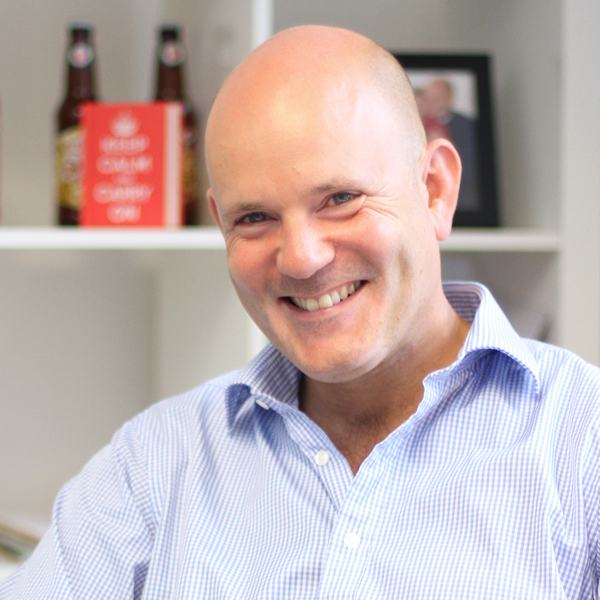Participating effectively and authentically in the discussions around Black Lives Matter, and helping to make real progress in racial equality, is even more crucial in these times of resilience and recovery. What can businesses and brands do to be a more meaningful part of this progress?
On the second day of Kantar Talks, I spoke with Karen Blackett (WPP), June Sarpong (BBC) and David Lammy (Member of Parliament, British Labour Party) about some of the challenges and opportunities for brands and businesses looking to positively change their participation and narrative around race and ethnicity.
Following is a summary of the buildup to the environment we are facing today, along with some key takeaways from the powerful, reflective and action-oriented discussion we had.
Recent events in the US leading to the Black Lives Matter protest have sparked global unrest and reinvigorated the debate on how to fight racism and make more progress in racial equality. In the UK, it has opened up a conversation about the systemic racism that exists in our own society, and has put a spotlight on the role corporations and brands can play in accelerating anti-racism in Britain, and doing their part to empower and enable Black employees and consumers.
Assessing where we are in this moment of time, the McKinsey framework was discussed, which highlights key parts of UK society where the biggest challenges and opportunities for systemic change lie. Economic Empowerment and Wealth Creation, and Culture, Awareness and Respect were identified as focal points of relevance pertaining to our industries. As brands and businesses struggle to manage this, remember there is a lot of scope in not only taking lead and making disruptive changes, but also for businesses to collaborate, learn from each other and build something new.
Everyone has a responsibility in ensuring they play their part in the change, and this can take place on different levels. Here are some tips from our panel of experts:
What can society do?
1. Listen more and understand better. Then act in a focused and targeted way.
Don’t be inadvertently complicit to a system that is unfair. Inform yourself better, ask questions, speak up, take action.
Face the undeniable facts that have acted as a catalyst to the Black Lives Matter movement and use the awareness to push for a culture that is inclusively balanced and just. "What we now have is an excitement around this, and what it has done is it's making us look at underrepresentation and injustice in general.” (Sarpong)
2. Support and enable more role models
Ensure diverse representation and use new examples of leadership to set new norms. The balance of having different people come together to fill in each other’s blind spots helps make better decisions.
What can brands and businesses do?
1. Take ownership of your perception
74% of consumers expect brands to have a positive contribution in society. It is now more important than ever to step forward and act. Check your own prejudices and privileges. Brands and how they advertise shape cultural norms — recognise your role in that and take ownership of the perception you are framing.
2. Know the facts and data and commit to ACT
Diversity of thought and creativity starts with data. Understand where your organisation stands, where the gaps are and what you can do to create a diverse and inclusive culture to reflect the audience you’re trying to communicate with. “You need to make sure that every single decision-making board in your organisation has diverse representation.” (Blackett)
3. Create new ladders to success
With issues of economic power and acumen within communities, positive discrimination can help bring about progressive change, as has been seen in its implementation regarding gender disparity. Identity areas where your organisation and its ecosystem can benefit from this moving forward.
Within employment, the focus on representation and inclusion should not just be on entry-level positions but across all levels of the organisation. “We need to see people retained, advanced, mentored and brought through. That does contribute to economic power, particularly those people that advance up to senior positions.” (Lammy)
4. Talk openly, build empathy, create allies
Only 38% of employees feels their employer is comfortable talking about race. Create an environment for your employees where they feel safe and heard and can contribute to.
Consumers are asking for better representation and more inclusion. Build content that instils empathy with the audience. Understand the stories of your audience so your brand story can reflect theirs and resonate on a personal level.
5. Set goals and measure frequently over time
Create targets within your organisation and develop measures to monitor actionable change through granular data over time. Use it to build a framework where sentiments can be owned and find a common ground to execute new changes.
Don’t be afraid of getting things wrong. Learn how to galvanise your organisation if it doesn't reflect the change you are advocating for. Admit you need to make changes and authentically go about to making those.
6. Prime for the future
Harness the potential of the articulacy and determination of the millennials in relation to issues of race. The challenge lies in the millennials not having the levers of power at hand as per the older generation, but there is a real opportunity to make real progress for the future. And the priming for the starts now.


